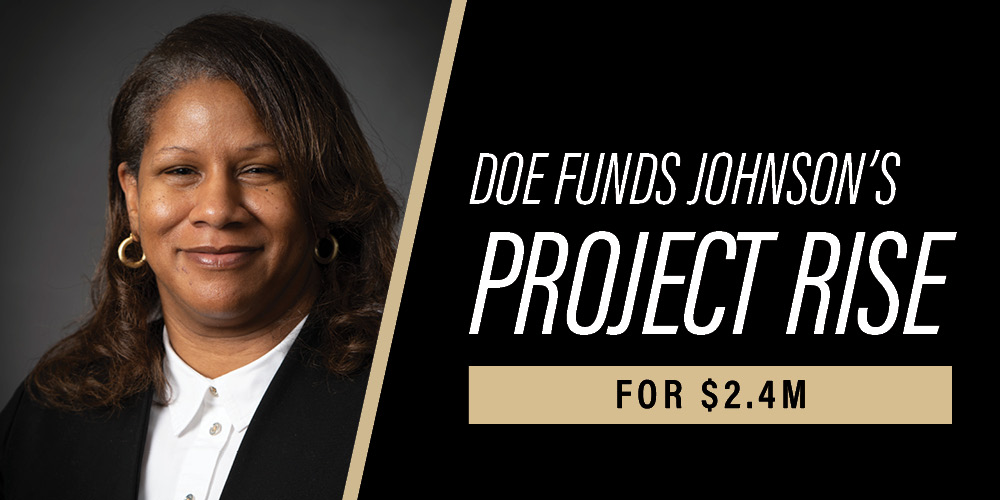Providing “an educated citizenry”: Project RISE

DOE Funds Johnson's Project Rise for 2.4 million
Thomas Jefferson believed firmly that “an educated citizenry is a vital requisite” for a functioning democracy. A new project headed by Purdue University researchers seeks to provide teachers with learning strategies and professional development opportunities to nurture citizen-engineers and provide civic opportunities to all youth.
Led by researchers and educators in Purdue’s College of Education and the College of Liberal Arts, and North Carolina State University, the U.S. Department of Education recently funded Project RISE for $2.4 million. The project will develop and implement innovative digital civics instruction modules, a mobile app, and teacher professional development opportunities to improve the quality of teaching and to enhance students’ civic readiness.
The five-year project will use engineering design approaches to help middle- and high school students, particularly those from low income and underserved communities, to better understand and address systemic inequities in their communities and to demonstrate how civic purpose, knowledge, and skill can influence public policy to solve such problems. It will develop and test three student curriculum modules that integrate civics education and engineering design approaches (PILLARS) to train teachers to help their students use this knowledge to engage in the local community via at least one PATHWAYS module using the mobile app. PATHWAYS modules are justice-oriented, and spotlight challenges or trends within communities.
At Purdue, Chrystal S. Johnson (PI), associate professor of curriculum and instruction, will collaborate with Co-PIs in the College of Education: Selcen Guzey, associate professor of curriculum and instruction; Weiling Li, Senior Research and Evaluation Specialist, and Jennifer Sdunzik, post-doctoral research associate, both in the Evaluation and Learning Research Center. Other Co-PIs are Cornelius Bynum, director of the African American Studies and Research Center and associate professor of history in the College of Liberal Arts, and Tamecia R. Jones, assistant professor of engineering education at North Carolina State University.